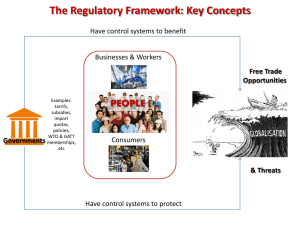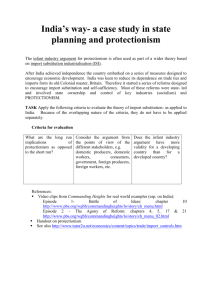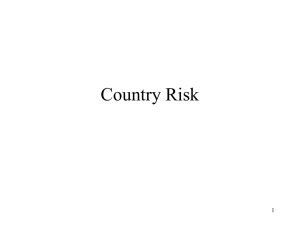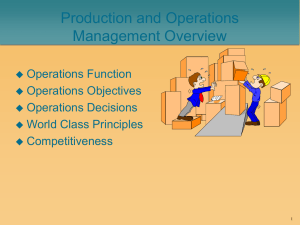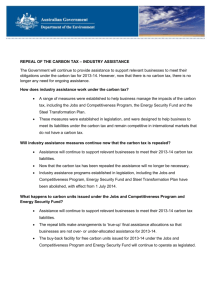Why Nations Trade
advertisement
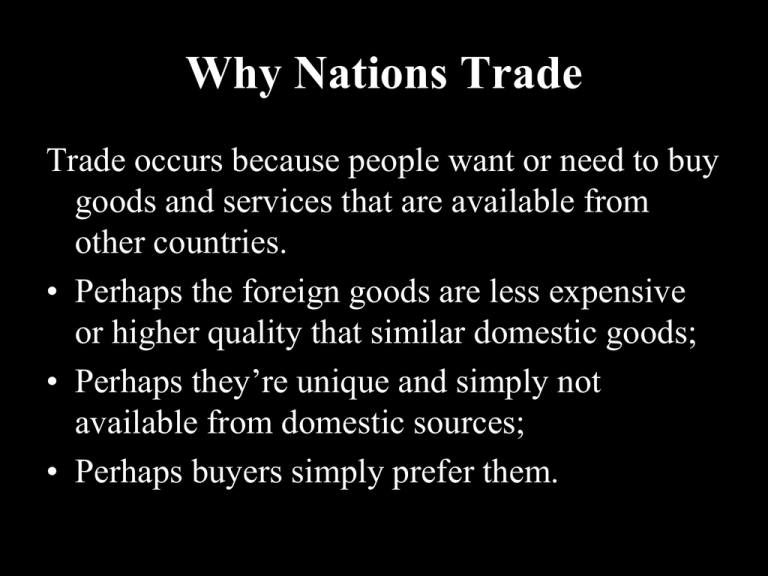
Why Nations Trade Trade occurs because people want or need to buy goods and services that are available from other countries. • Perhaps the foreign goods are less expensive or higher quality that similar domestic goods; • Perhaps they’re unique and simply not available from domestic sources; • Perhaps buyers simply prefer them. Competitiveness Competitiveness refers to a country’s ability to produce and market goods and services that people want to buy. • Strong competitiveness typically leads to job creation and economic growth, • Weak competitiveness could result in fewer jobs and slower economic growth. • Nations with advantages such as a high-quality workforce, a well-developed infrastructure or abundant natural resources are better able to produce desired goods and services efficiently. Free Trade and Protectionism Despite its many benefits, trade can pose serious shortterm and long-term challenges to a country’s economic health. • Foreign competition helps to keep prices low, but it also can lead to lower profits and unemployment in uncompetitive industries. • As a result, some companies and industries try to get their government to protect them from foreign competition. • All countries practice some protectionism, but the practice is often highly controversial, pitting the interests of households, businesses and governments against each other. Methods of Protectionism Each of the various tools that countries use to restrict and regulate foreign trade – such as tariffs and quotas – has its own advantages and disadvantages, and each affects economic growth and employment in different ways. Arguments for Free Trade • Free trade provides consumers with a wide variety of goods and services, sometimes less expensively than would be available under a restricted trading system. • Competition that is brought about by free trade helps keep companies modern and competitive. • The costs of protectionism outweigh the benefits. The Future Many large companies are international in that they have branches and/or partnerships overseas; many more buy and sell goods and services all over the world. Global business networks have mostly replaced huge, centrally located, hierarchical companies. This means workers in any country will have to prepare to compete with workers all over the world. The skills needed to compete successfully will increasingly have international components. Foreign languages, knowledge, and experience of business practices in other countries, and the ability to deal with different cultures will be more and more valuable.

